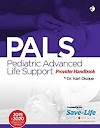Pediatric Food Preferences and Eating Behaviors 2018
| Pediatric Food Preferences and Eating Behaviorsreviews scientific works that investigate why children eat the way they do and whether eating behaviors are modifiable. The book begins with an introduction and historical perspective, and then delves into the development of flavor preferences, the role of repeated exposure and other types of learning, the effects of modeling eating behavior, picky eating, food neophobia, and food selectivity. Other sections discuss appetite regulation, the role of reward pathways, genetic contributions to eating behaviors, environmental influences, cognitive aspects, the development of loss of control eating, and food cognitions and nutrition knowledge. Written by leading researchers in the field, each chapter presents basic concepts and definitions, methodological issues pertaining to measurement, and the current state of scientific knowledge as well as directions for future research. Delivers an up-to-date synthesis of the research evidence addressing the development of children's eating behaviors, from birth to age 18 years Provides an in-depth synthesis of the basic eating behaviors that contribute to consumption patterns Translates the complex and sometimes conflicting research in this area to clinical and public health practice Concludes each chapter with practical implications for practice Presents the limits of current knowledge and the next steps in scientific inquiry | |||
Table of contents : Content: 1. Measuring Sweet and Bitter Taste in Children: Individual Variation due to Age and Taste GeneticsJulie A. Mennella, Alissa A. Nolden, Nuala Bobowski2. Learning to Like: Roles of Repeated Exposure and Other Types of LearningStephanie Anzman-Frasca, Sarah Ehrenberg3. Effects of Modeling on Children's Eating BehaviorJ. Blissett4. Children's Challenging Eating Behaviors: Picky Eating, Food Neophobia,and Food SelectivitySusan L. Johnson, Kameron J. Moding, Laura L. Bellows5. Satiety Responsiveness and Eating Rate in Childhood: Development, Plasticity, and the Family FootprintBrenda Burgess, Myles S. Faith6. Role of Reward Pathways in Appetitive Drive and RegulationAshley N. Gearhardt7. Appetitive Traits: Genetic Contributions to Pediatric Eating BehaviorsAlexis C. Wood8. The Influence of the Food Environment on Food Intake and Weight Regulation in ChildrenTanja V.E. Kral9. Parenting Influences on Appetite and WeightSheryl O. Hughes, Thomas G. Power10. Executive Function and Self-Regulatory Influences on Children's EatingL.A. Francis, N.R. Riggs11. Neurocognitive Influences on Eating Behavior in ChildrenKathleen L. Keller, Amanda S. Bruce12. Development of Loss of Control EatingMeghan Byrne, Marian Tanofsky-Kraff13. Intentional Self-Regulation of Eating Among Children and AdolescentsKatherine W. Bauer, Sam Chuisano14. Food Cognition and Nutrition KnowledgeJasmine M. DeJesus, Katherine D. Kinzler, Kristin Shutts |














